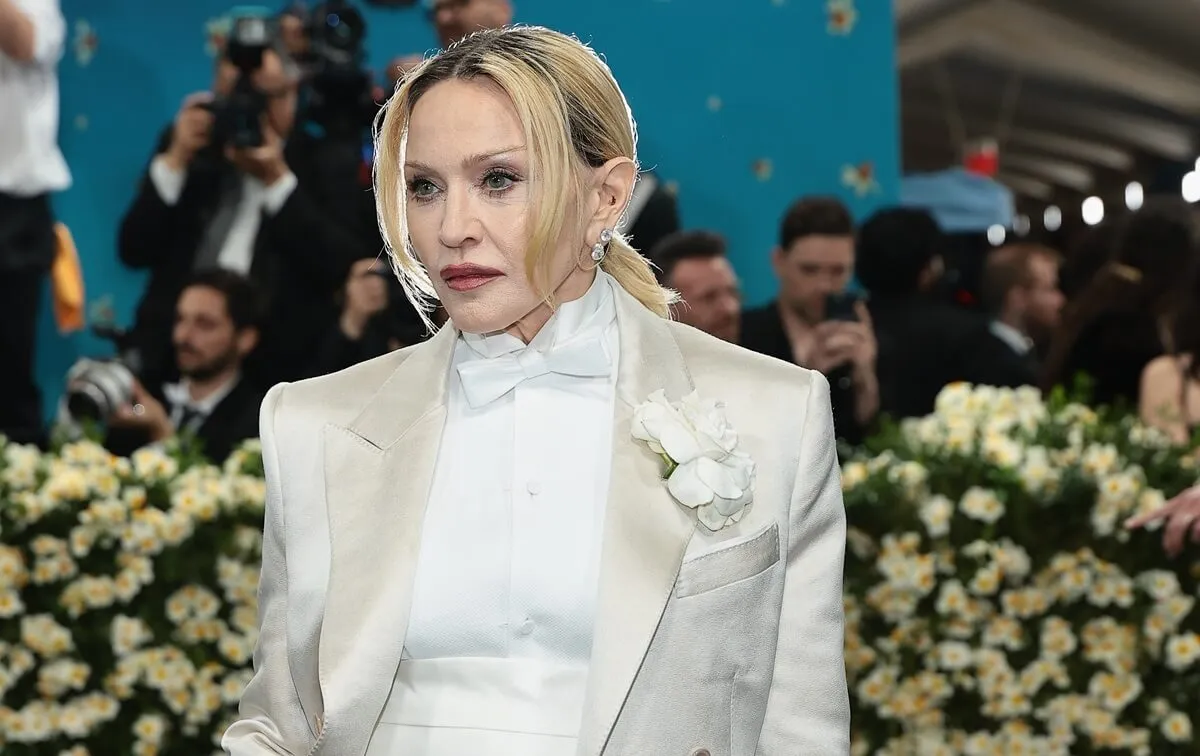How MobLand completely ruined the UKâs favourite swear word
Profanity has always been the heart and soul of Guy Ritchieâ??s tough guy offerings, but his new Paramount show is saturated in so many c-words that it may just have ushered in the death of swearing. Helen Coffey mourns the senseless dilution of our most beloved curse word

Sign up to our free IndyArts newsletter for all the latest entertainment news and reviews
Sign up to our free IndyArts newsletter
I would like to be emailed about offers, events and updates from The Independent. Read our Privacy notice
When I started watching MobLand, Guy Ritchieâs new London gangster drama featuring an all-star cast including Dame Helen Mirren, Tom Hardy and Pierce Brosnan, I initially thought the most ridiculous thing in it was the accents. Thereâs Brosnanâs preposterous âIrishâ brogue for starters â even more inexplicable when you consider that the man actually is Irish â an amalgamation of every terrible âtop oâ the morninâ to ya!â impression youâve ever heard, and arguably even worse than his much-mocked turn in the 1988 film Taffin. Then thereâs Mirrenâs equally scattergun attempt at convincing us she hails from the Emerald Isle, not to mention the myriad botched cockney dialects that frequently threaten to tip over into full Dick Van Dyke territory.
But before long, another element in the buzzy new Paramount show, centred around the Harrigan crime family, vied for top dog in the âsuspend your disbeliefâ Olympics.
The first time it happened was nine minutes and 45 seconds into episode one: the c-word, flung out in a gritty East End nightclub, the mobster equivalent of a glove slap as the precursor to a duel. Another one landed five seconds later. A third swiftly followed. A brief spell of furious running from Eddie Harrigan (Anson Boon), and then âc***â number four slid into view.
At first, I took it in my stride. These are professional criminals, I reasoned; a little potty-mouthed dialogue is par for the course when youâve got a load of hardmen trying to out-hard each other while strutting around and flashing weaponry. Yet the repetition quickly became so frequent it began to feel a little⦠farcical. Silly, even. The word resembled an arbitrary punctuation mark, a kind of lazy shorthand for âLook at us â weâre ever so tough!â
Without even realising I was doing it, I stopped paying attention to the story and switched my focus to counting the âc***sâ. Five. Six. Seven. Eight. Nine⦠They stopped just shy of double digits in episode one, but I was on a roll now. I continued tallying with a kind of horrified fascination, as if doing an 18-rated version of Count von Count from Sesame Streetâs schtick.
Episode two saw a dip in usage, with only two during the entire 50-minute runtime, but by episode three we were back, baby: another nine, shoehorned in with all the subtlety of a brick lobbed through a freshly glazed window. The undisputed winner, though, was episode five, the âc***âs coming thick and fast to reach a dizzying total of 11 â the equivalent of one every three minutes. Five of these were uttered in the final eight minutes alone.
The word is used indiscriminately by nearly every character in the show, upon any and every occasion. Feeling lethally angry towards someone? Call them a c***. Mildly aggrieved? Call them a c***. Affectionate? Call them a c***. Sorry for them? Call them a poorc***.
âMobLandâ features an all-star cast â and a whole lot of swearing (Paramount+ )
It would make an effective drinking game â take a shot every time you hear the c-word! â but only if your real aim was to end the evening in A&E getting your stomach pumped. Itâs like someone fed Peter Cook and Dudley Mooreâs infamous Derek and Clive Live âThis Bloke Came Up To Meâ sketch â which contains an awe-inspiring 36 âc***âs within the space of three minutes and 40 seconds â into ChatGPT and asked it to burp out a 10-part gangster drama.
By the time Iâd watched six episodes, it no longer even registered as a curse word, let alone the most potent one in the English language. I had to catch myself before saying it casually to my mum on the phone; my boss over Slack; the unsuspecting woman on the checkout at Asda. I had to remind myself that calling someone a âc***â is not, in fact, an appropriate response to every situation.
Watch Apple TV+ free for 7 day
New subscribers only. £8.99/mo. after free trial. Plan auto-renews until cancelled.
Try for free
ADVERTISEMENT. If you sign up to this service we will earn commission. This revenue helps to fund journalism across The Independent.
Watch Apple TV+ free for 7 day
New subscribers only. £8.99/mo. after free trial. Plan auto-renews until cancelled.
Try for free
ADVERTISEMENT. If you sign up to this service we will earn commission. This revenue helps to fund journalism across The Independent.
The c-word has long been the undisputed king of swears, one that wields the mightiest power to offend, titillate and make people laugh depending on timing and context. The oldest word for female genitalia in the English language, this is profanity with some historical clout (though, admittedly, it wasnât offensive back in the 13th century when its first usage was recorded). It may be too much for many Americansâ tastes, and have been watered down into a neutral or complimentary term by the Aussies (see: âHeâs a good c***â), but most Brits hold the expletive in high esteem, understanding its expansive, unrivalled capacity to shock and endear. Itâs no coincidence that TheWhite Lotusâs Englishstars, Jason Isaacs and Aimee Lou Wood, both independently named it as their favourite curse word in recent interviews.
By the time Iâd watched six episodes, it no longer even registered as a curse word
Understand when and where to use it â shrewdly and with discernment â and itâs like carrying the sharpest, most adaptable blade in your lexiconic arsenal at all times. National treasure Kathy Burke is the master of this, able to deftly deploy âc***â with the precision and comedic timing it needs to hit a home run. By comparison, MobLand isnât even attempting to make contact with the ball â simply lobbing bats across the field at random and hoping one of them hits something.
Iâm not annoyed by the proliferation of profanity because Iâm offended by it. Iâm annoyed because MobLand has taken this most special of curses, in all its jagged, ugly elegance, and flogged it to death, diluting it through overexposure and robbing it of its muscle. The sheer abundance of âc***âs ensures they donât punch through or enhance the dialogue. Instead, they awkwardly stumble across the screen: flabby, toothless, a little embarrassing. Itâs like seeing a once-proud empress dethroned and wandering the streets in rags. My heart aches for her.
Itâs ironic, in a way. In a drama dominated by senseless gangland killings, the murder of our beloved c-word turned out to be the most tragic of all.
















:max_bytes(150000):strip_icc():focal(749x0:751x2)/kim-kardashian-tout-050725-a650f6f0a60c4a35ab44bbf41edef9a1.jpg)





